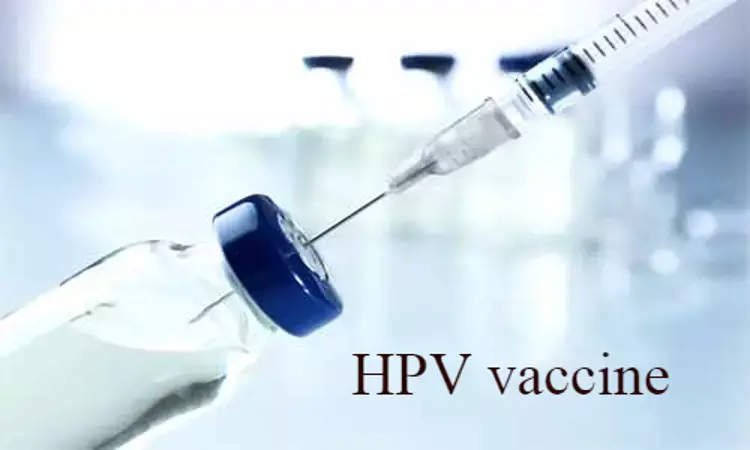- Home
- Medical news & Guidelines
- Anesthesiology
- Cardiology and CTVS
- Critical Care
- Dentistry
- Dermatology
- Diabetes and Endocrinology
- ENT
- Gastroenterology
- Medicine
- Nephrology
- Neurology
- Obstretics-Gynaecology
- Oncology
- Ophthalmology
- Orthopaedics
- Pediatrics-Neonatology
- Psychiatry
- Pulmonology
- Radiology
- Surgery
- Urology
- Laboratory Medicine
- Diet
- Nursing
- Paramedical
- Physiotherapy
- Health news
- Fact Check
- Bone Health Fact Check
- Brain Health Fact Check
- Cancer Related Fact Check
- Child Care Fact Check
- Dental and oral health fact check
- Diabetes and metabolic health fact check
- Diet and Nutrition Fact Check
- Eye and ENT Care Fact Check
- Fitness fact check
- Gut health fact check
- Heart health fact check
- Kidney health fact check
- Medical education fact check
- Men's health fact check
- Respiratory fact check
- Skin and hair care fact check
- Vaccine and Immunization fact check
- Women's health fact check
- AYUSH
- State News
- Andaman and Nicobar Islands
- Andhra Pradesh
- Arunachal Pradesh
- Assam
- Bihar
- Chandigarh
- Chattisgarh
- Dadra and Nagar Haveli
- Daman and Diu
- Delhi
- Goa
- Gujarat
- Haryana
- Himachal Pradesh
- Jammu & Kashmir
- Jharkhand
- Karnataka
- Kerala
- Ladakh
- Lakshadweep
- Madhya Pradesh
- Maharashtra
- Manipur
- Meghalaya
- Mizoram
- Nagaland
- Odisha
- Puducherry
- Punjab
- Rajasthan
- Sikkim
- Tamil Nadu
- Telangana
- Tripura
- Uttar Pradesh
- Uttrakhand
- West Bengal
- Medical Education
- Industry
Single HPV vaccine dose as effective as multiple doses against cervical cancer

Texas: A single dose of the human papillomavirus (HPV) vaccine is as effective as multiple doses for the prevention of preinvasive cervical disease, which can later develop into cervical cancer. The findings of the study are published in the journal Cancer, a peer-reviewed journal of the American Cancer Society (ACS).
HPV is the most common sexually transmitted infection in the United States, and persistent infection with certain types of the virus can cause cervical cancer. To prevent infection, the Centers for Disease Control and Prevention recommends that adolescents -- both boys and girls -- under the age of 15 years receive a two-dose schedule of the HPV vaccine. To determine the effectiveness of other dose schedules, Ana M. Rodriguez, MD, MPH, of The University of Texas Medical Branch at Galveston, and her colleagues examined information on females aged 9 to 26 years who were unvaccinated or who received one or more HPV vaccine doses between January 2006 and June 2015.
The analysis included 133,082 females (66,541 vaccinated and 66,541 unvaccinated). For females ages, 15 to 19 years, those who received one, two, or three doses of the HPV vaccine had lower rates of preinvasive cervical disease than adolescents who were unvaccinated. Within five years, 2.65 percent of unvaccinated teens aged 15 to 19 years developed preinvasive cervical disease, compared with 1.62 percent, 1.99 percent, and 1.86 percent in the one-, two- and three-dose groups, respectively. The risk of preinvasive cervical disease was 36 percent, 28 percent, and 34 percent lower for adolescents who received one, two, and three doses, respectively, compared with adolescents who were unvaccinated.
For the youngest (less than 15 years old) and oldest age groups (20 years and older), the investigators did not find significant differences among the vaccinated groups in terms of risk for preinvasive cervical disease.
"This study shows the impact of vaccinating at younger ages and its lasting long-term protection against cervical cancer," said Dr. Rodriguez. "It is important to educate parents about the need to vaccinate their children."
An accompanying editorial discusses the public health implications of the study's findings. "If one dose of HPV vaccine was sufficient for effective protection, HPV vaccine implementation and scale-up would require less logistics..., available doses could extend further, and the overall cost would be lower," the authors wrote.
The study, "Comparison of the long‐term impact and clinical outcomes of fewer doses and standard doses of human papillomavirus vaccine in the United States: A database study," is published in the journal Cancer.
DOI: 10.1002/cncr.32700
Dr Kamal Kant Kohli-MBBS, DTCD- a chest specialist with more than 30 years of practice and a flair for writing clinical articles, Dr Kamal Kant Kohli joined Medical Dialogues as a Chief Editor of Medical News. Besides writing articles, as an editor, he proofreads and verifies all the medical content published on Medical Dialogues including those coming from journals, studies,medical conferences,guidelines etc. Email: drkohli@medicaldialogues.in. Contact no. 011-43720751


